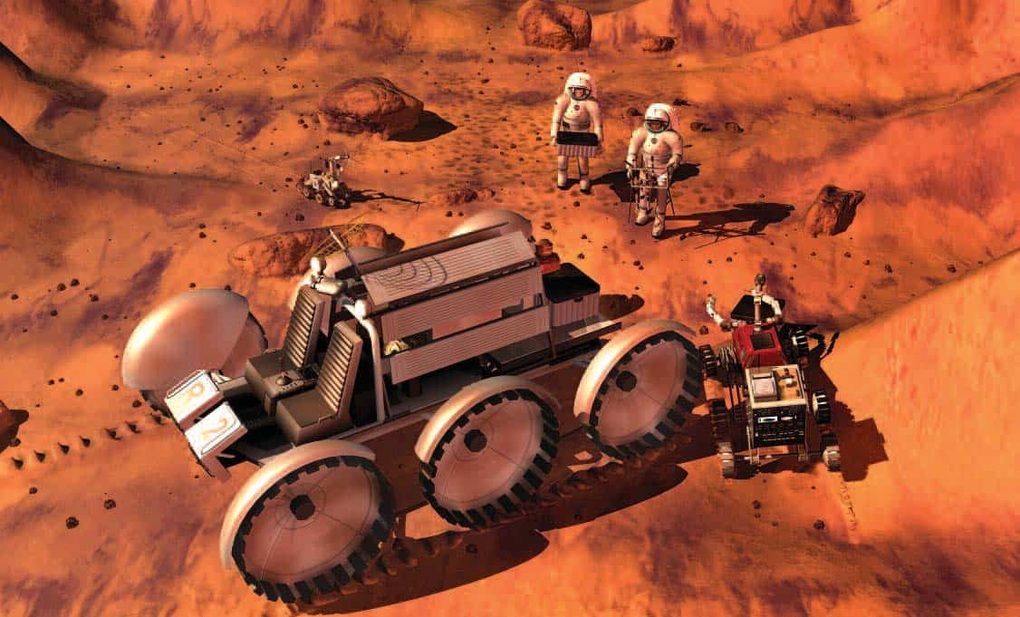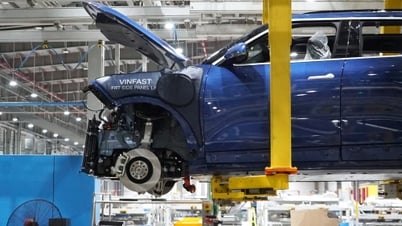
Elon Musk shares his strong belief in expanding life beyond Earth (Photo: SpaceX).
In an interview with host Jesse Watters on Fox News on May 6, billionaire Elon Musk - founder of SpaceX - emphasized that expanding life beyond Earth is not just an option, but a long-term necessity.
According to him, the blue planet we live on will not be able to sustain life forever, because the Sun is gradually heating up and will burn the Earth in the future.
Musk said: "Eventually, all life on Earth will be destroyed by the Sun. The Sun is expanding, and at some point, we need to become a multi-planetary civilization, because the Earth will burn up."
Astronomers have long recognized that the Sun's evolution will render the planet uninhabitable in about 450 million years, as the increased energy vaporizes the oceans and destroys the atmosphere. And in 5 billion years, when the Sun transitions into a red giant phase, it will engulf the Earth.
Journey to conquer Mars: From ideal to reality

Illustration of the SpaceX Starship spacecraft on Mars (Photo: SpaceX).
Faced with that prospect, Elon Musk believes that Mars is the most viable option for humanity to expand its footprint in the universe. "Mars is like life insurance for human civilization," he said.
The Red Planet lies in the habitable zone of the Solar System, has a day-night cycle similar to Earth's, and is a more realistic target than other distant planets.
To make this dream a reality, SpaceX is developing Starship - the largest and most powerful rocket system ever built, with a fully reusable design to reduce launch costs to a level acceptable for interplanetary transport.
Starship is also the main vehicle in plans to build a colony on Mars - a vision that Musk describes as "absolutely achievable this century, if we put our minds to it".
Despite eight test flights, including two in 2025, Starship is still in its final stages. Several flights have been marred by problems, with the rocket’s upper stage exploding just minutes after liftoff.
However, SpaceX continues to improve and prepare for the 9th flight with many expectations to take a big step forward in the journey to Mars.
What would life be like on Mars?

Life on Mars won't be easy, but humans are slowly conquering the Red Planet (Photo: Getty).
Settling on Mars is not only a technological breakthrough but also an existential challenge for humanity. To survive, future residents will need to live in self-contained ecological modules where air conditioning, water and food must be constantly recycled.
Technologies such as closed-environment agriculture , which harnesses indigenous resources (ISRUs) such as water ice and CO₂ to generate oxygen, will play a vital role.
In addition, cosmic radiation, extreme temperatures and low gravity are serious physiological and psychological factors that scientists must deal with. Elon Musk once envisioned that in the future, "dome cities" on Mars will gradually take shape, paving the way for an autonomous society - the foundation for the first multi-planetary civilization in history.
From Elon Musk’s far-sighted vision to SpaceX’s concrete steps, the journey to Mars is no longer a fantasy. It is a strategic plan for humanity to protect itself from the impermanence of the universe, and who knows, in a few decades, today’s young Vietnamese generations could be the first inhabitants of the Red Planet.
Source: https://dantri.com.vn/khoa-hoc/elon-musk-tat-ca-su-song-tren-trai-dat-rot-cuoc-se-bi-mat-troi-huy-diet-20250508064148142.htm





































































































Comment (0)